Author Bill Bryson was nervous about selling film rights to his book A Walk in the Woods
AUTHOR Bill Bryson admits he was nervous about selling the movie rights to a best-selling book. ‘You sell all rights — they can do anything’.
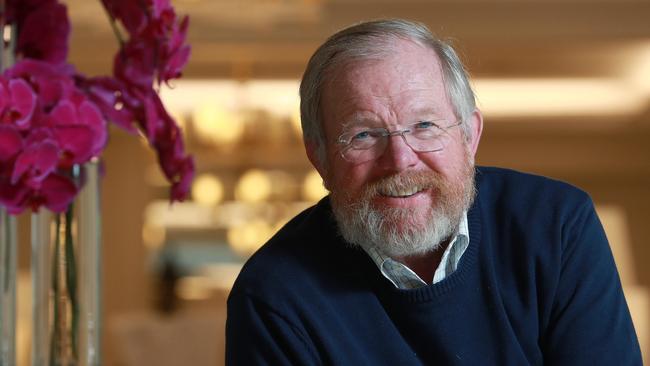
New Movies
Don't miss out on the headlines from New Movies. Followed categories will be added to My News.
AUTHOR Bill Bryson admits he was nervous about signing away the movie rights to one of his best-selling books.
“You never know quite what you are going to end up with,” muses the affable, bearded American-born, Britain-based writer.
“The thing is that when you sell book rights, you sell all rights — they can do anything. They could make you into a child molester and you have no recourse because of the contract you signed.”
But it put Bryson’s mind at ease that it was esteemed actor/director/producer Robert Redford who inquired after the rights to his 1998 bestseller A Walk In the Woods: Rediscovering America On the Appalachian Trail. And not just because the veteran sex symbol would playing him on screen, surely the fantasy of every male of a certain age.
“I was very pleased,” he says, with a laugh, adding that the resemblance between the two is “uncanny”.

“But actually, I have reached the time of life where vanity fades away from the equation, but I was really so pleased because of his intelligence and the fact that he makes good movies.
“I have on occasion dealt with people that I didn’t trust at all and in fact wouldn’t sign with them, but with Robert Redford I was entirely happy to sign anything and let him take command.”
Bryson’s book traces his journey along the famed Appalachian Trail, a hiking track in the eastern US that runs for 3500km from Georgia to Maine. Accompanied by an old friend — overweight, recovering alcoholic Stephen Katz, with whom he had trekked and bickered his way around Europe decades earlier — it was Bryson’s attempt to reconnect with his homeland after a long stint living in the UK.
Redford had grabbed the book as some last-minute holiday reading more than a decade ago and originally planned for it to be one last vehicle for his good friend, Paul Newman.
Sadly, Newman’s age and physical condition — he died aged 83 in 2008 — prevented Redford reuniting with his co-star of The Sting and Butch Cassidy and the Sundance Kid.
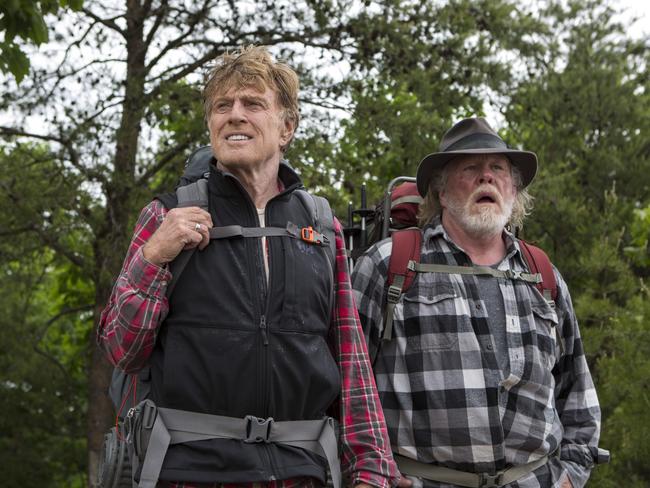
Bryson says he’d love to have seen that movie, he’s even happier with the way Redford and Nick Nolte, who has had his own run-ins with the law and substance abuse, have captured the fractured friendship between him and Katz.
“I think you had to have Nick Nolte as he is now to get that movie,” says Bryson. “I’m pretty certain of that. They would have made a great movie with Paul Newman and the wisecracking back and forth probably would have been even richer, but you would have lost some of the pathos that you get with Nick Nolte.”
After the deal had been struck, the author met Redford in London, and after a couple of hours talking about baseball, movies and the Bryson backstory, went away hugely impressed.
The pair met again at the Sundance Festival when Bryson had the distinctly odd experience of sitting next to a Hollywood legend in a movie version about his life.
“It was very bizarre at first and surreal,” says Bryson.
“Because here is Robert Redford on a giant screen and he is answering to my name and he is right here beside me. So it was all not in the course of normal things that I am expected to assimilate. Then, surprisingly quickly, I started watching it almost as any member of the audience would.”
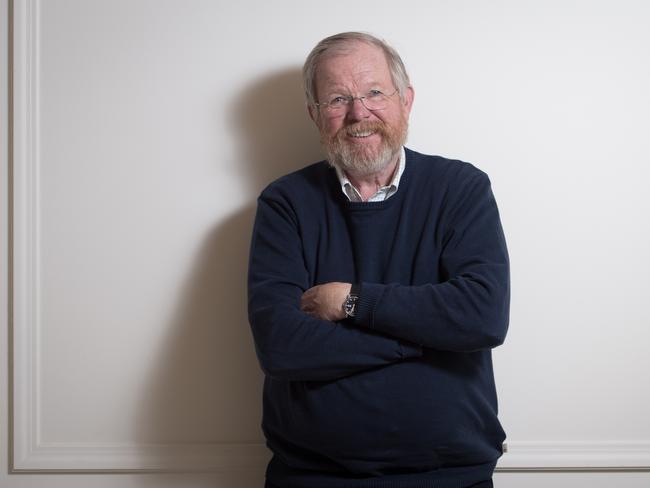
Bryson’s trip down the Appalachian Trail, as with most of his endeavours, both in travel writing and more recently the field of science, was partly driven by his relentlessly curious nature and thirst for knowledge. The opening lines to The Lost Continent, his first book as a fulltime writer after leaving journalism, read: “I come from Des Moines, Iowa. Somebody had to.”
He can trace his successful travel writing career, which has also featured books on Europe, Australia, Africa and England, to growing up in the remote American Mid-West and says he carries a sense of wonder at the world to this day.
“The physical isolation gave me a powerful urge to go see the world and to travel,” he says. “Even now, after all these years when I step off an aeroplane I’m thinking ‘f**k me, I’m in Melbourne, Australia!’. It remains an astonishment to me whenever I find myself in some place that nature clearly didn’t intend me to be, I just think ‘wow, this is great — I am so glad to be here’.
“I feel very lucky and I reflect on that all the time. I am sure that if I had grown up in a big city or an urban area, I wouldn’t have felt that anything like as powerfully as I do now.”
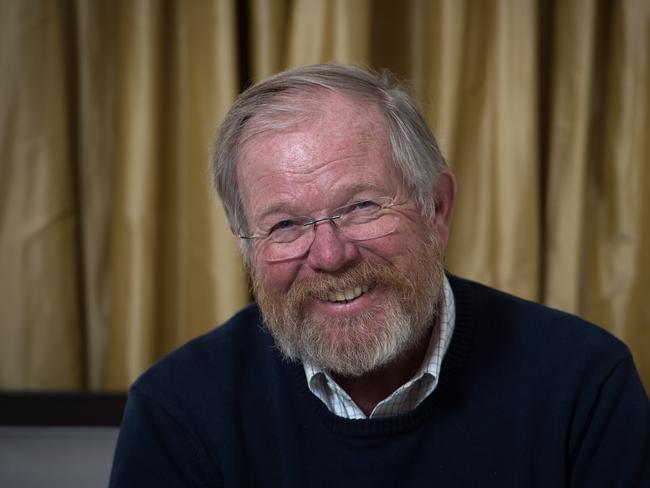
Despite having made his name as a travel writer, Bryson, much to the initial consternation of his publisher, has branched out into science writing, driven by a desire not to repeat himself and gratified by the runaway success of his 2003 book A Short History Of Nearly Everything.
In 2013, he was elected an honorary Fellow of the prestigious British science institution, the Royal Society, an achievement of which he is immensely proud.
“That was a huge honour for me,” he says. “There are a lot of really great and good scientists there, but they also have a commitment to do things like public engagement and for that they try to tap people like me or Brian Cox.
“To be included in that is a great honour but it’s also a lot of fun and it’s a chance to contribute in a small way to something that is important.”
He says his genre-hopping is “not a good idea” from a money-making publisher’s perspective of having all his releases in the same section of the book shop, but he’s determined to persevere with whatever takes his fancy.
“Every time you change genres, you pick up some new people but you do lose other people along the way,” he says, cheerfully. “People who think ‘oh, I liked his funny stuff — but this is shit’. I get a lot of letters to that effect.”
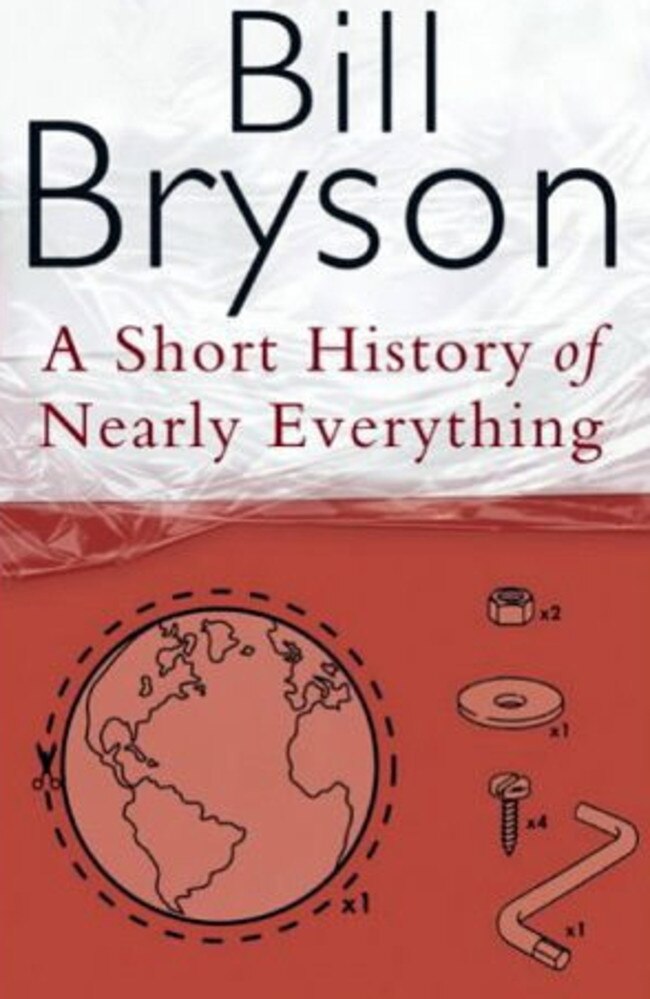
But readers who prefer his earlier work will be pleased to know he’s returning to his old stamping ground and “writing something to make people laugh in a travel genre” for the first time in 15 years.
“This is the 20th anniversary of Notes From a Small Island, which did very well in Britain,” he says. “I have agreed — under some pressure from my publisher but with increasing enthusiasm for the idea — to travel around Britain again and it’s going to be called The Road To Little Dribbling.
“As it turned out, I had just the best time doing it. I really do genuinely love the British and think it’s a fantastic country — but it’s also the most maddening, bizarre, most ill-managed country.
“There are so many things when I come to Australia where I think ‘why don’t they do this back in England? This works well’. England seems to have this commitment to disorder and to do certain things poorly, like service. So the book becomes an examination of why do I like these people so much when they drive me so crazy?”
A Walk In the Woods opens on September 3.
Originally published as Author Bill Bryson was nervous about selling film rights to his book A Walk in the Woods


